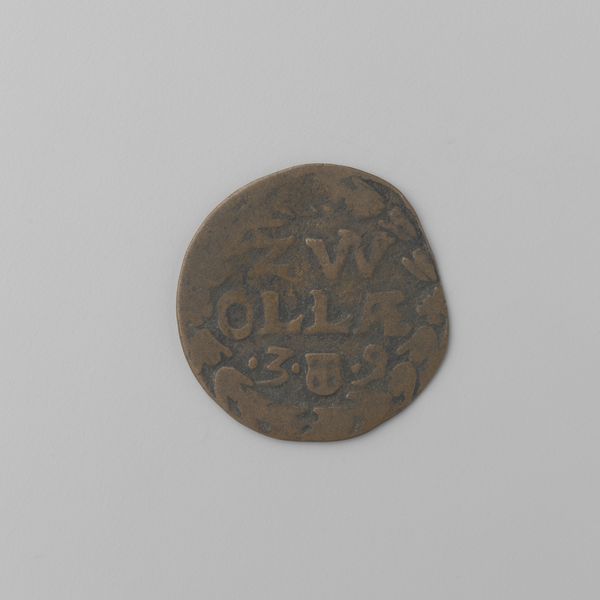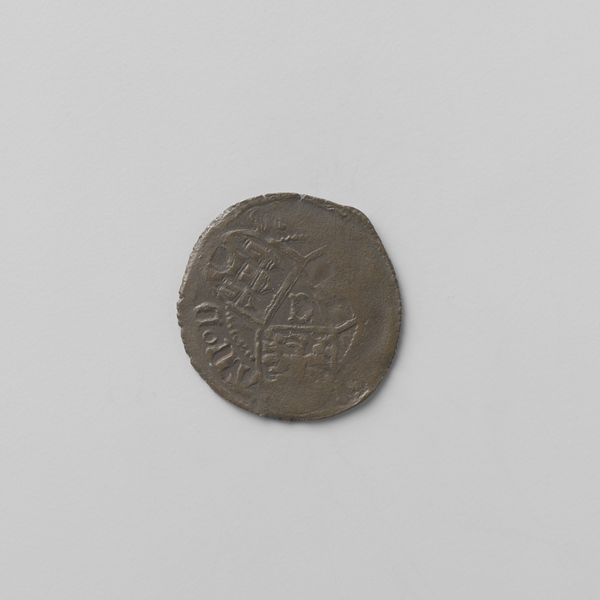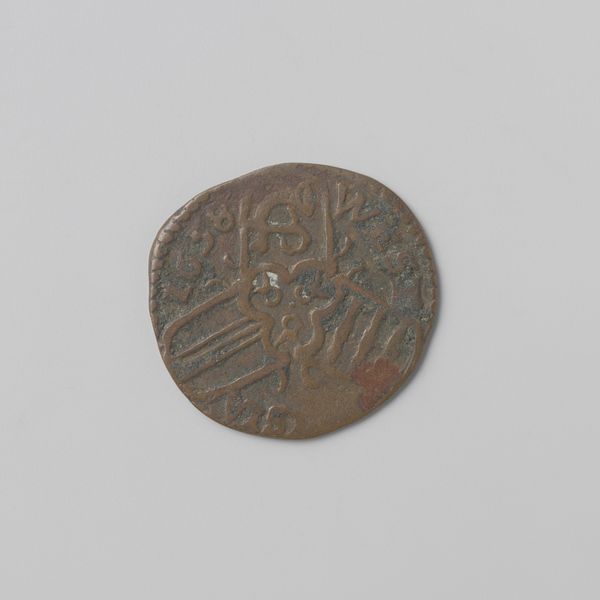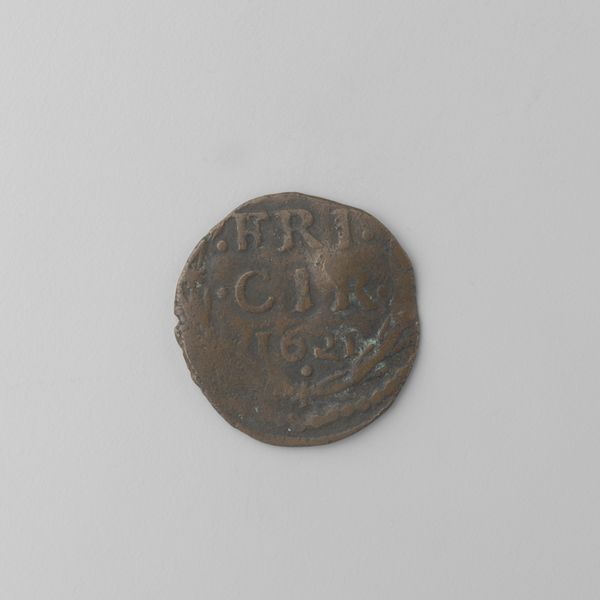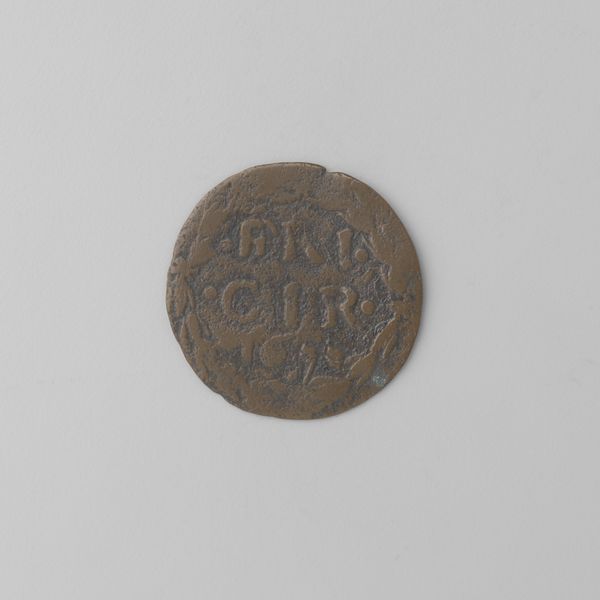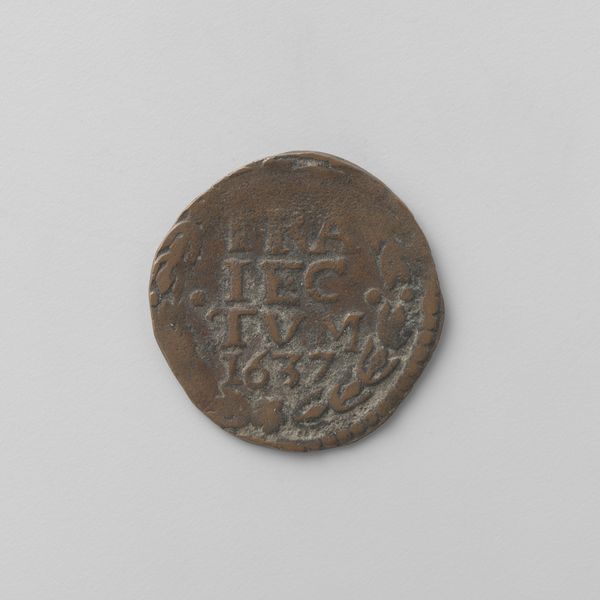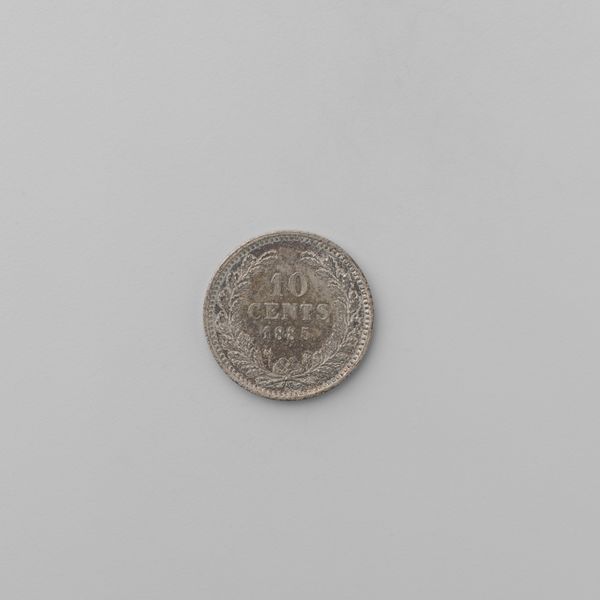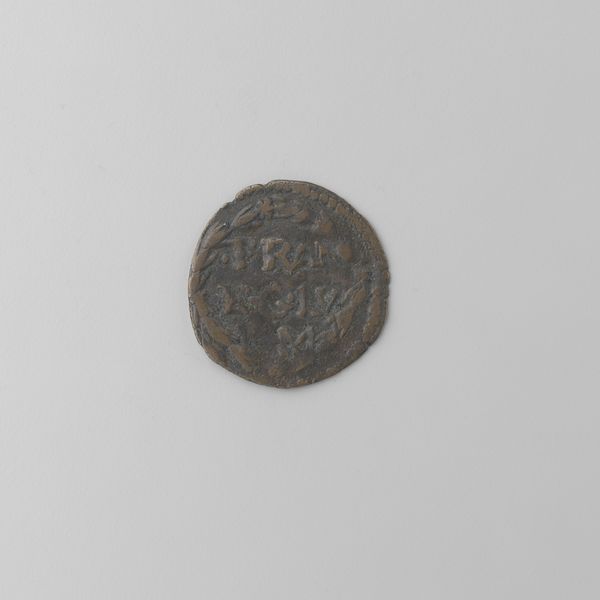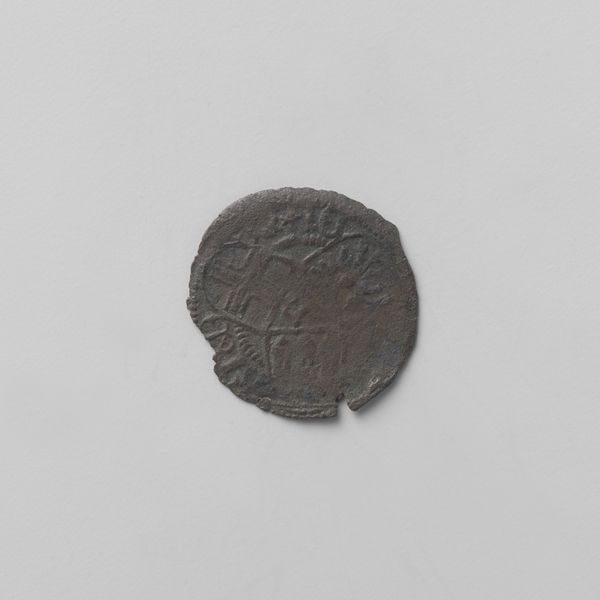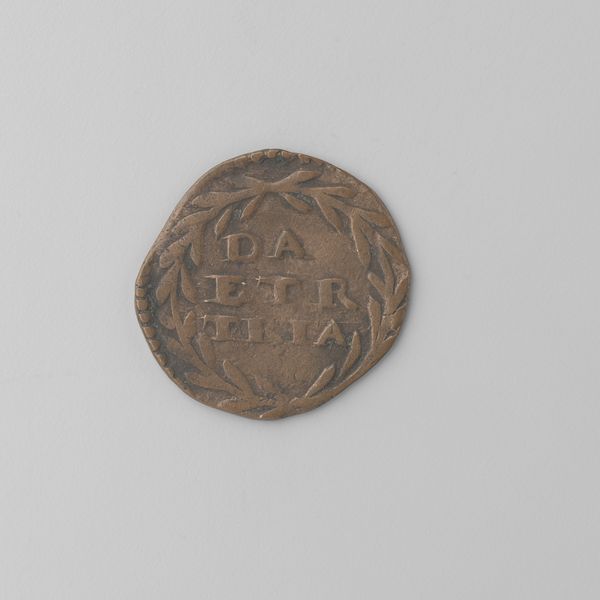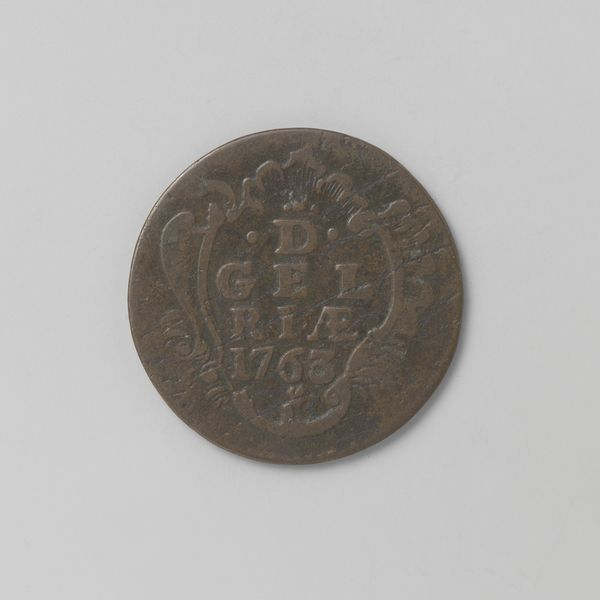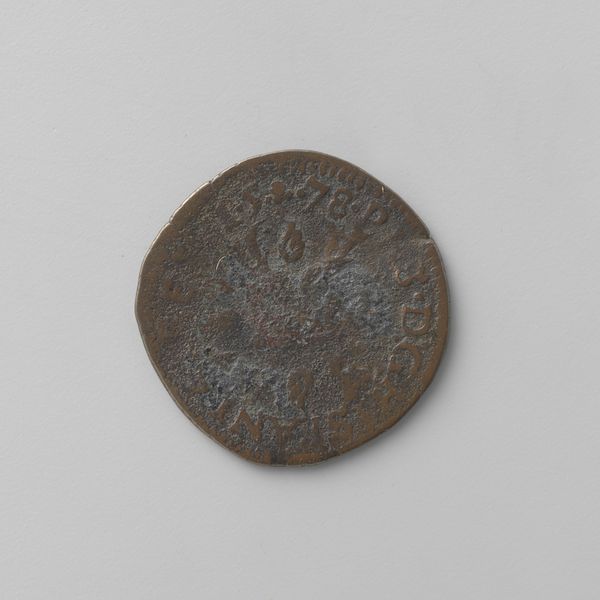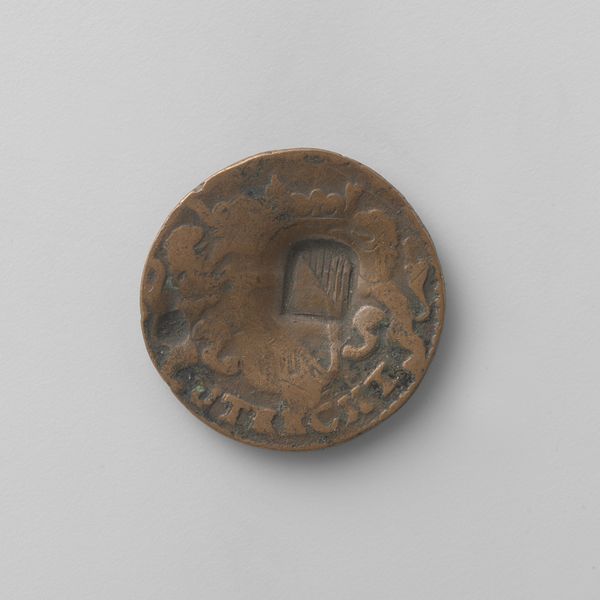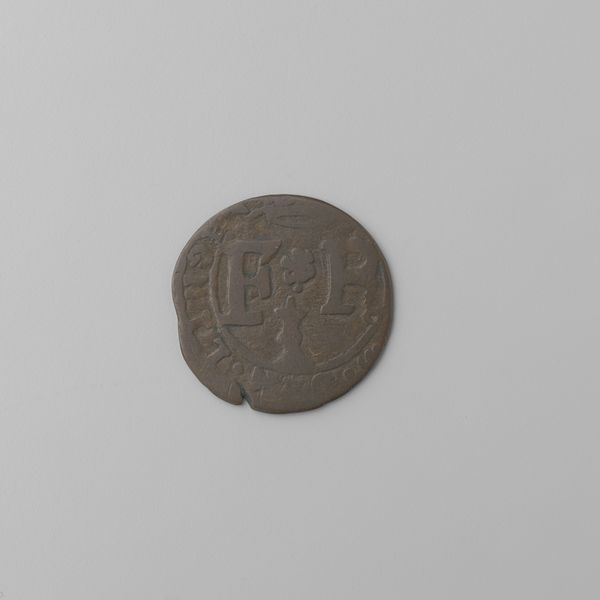
print, metal, engraving
#
portrait
#
baroque
# print
#
metal
#
history-painting
#
engraving
Dimensions: diameter 2.1 cm, weight 1.27 gr
Copyright: Rijks Museum: Open Domain
Curator: Here we have a "Reckheimse duit" – that's a coin – from the reign of Ferdinand van Aspremont-Lynden, who was heer, or Lord, of Reckheim from 1636 to 1665. Editor: It's wonderfully battered, isn't it? All those years clinking in pockets and purses. There's something almost heroic in its modest decay, a testament to the banality of its journey, and the resilience of humble things... like money, in the shaping of the everyday. Curator: It's small, of course, made of metal – probably copper. The image you're looking at is actually an engraving, giving us a much closer look than one would normally have. Editor: Those laurel wreaths, forever trying to immortalize power and influence… though now, time has blurred that very assertion of grand authority. I wonder if anyone using this coin so long ago ever thought that ordinary circulation itself could be an act of unintentional subversion against whatever message the ruling authority was intending... a kind of "death of the author," you know? Curator: A thought! You see those letters in the center: FRI and CUR. Those probably denote "Ferdinandus Comes de Reckheim," meaning Ferdinand, Count of Reckheim in Latin. Latin inscriptions and symbols were quite fashionable during this baroque period; rulers always looking to ancient Rome for authority. Editor: I like to think that every time it was spent, the weight of that title ever so subtly, unknowingly, shifted into the hands of the merchants, bakers, and common folk for whom it represented a slice of daily sustenance and transaction. Maybe an unintended transfer of dignity along with the trade? Or, to sound less hopeful... perhaps this dull token is yet another ironic echo of grand delusion. Curator: It serves now as a record; Ferdinand as Lord is now relegated to the role of history, something seen under glass and behind ropes. Editor: And maybe a reminder of our own inevitable fading. How even the loftiest ambitions can be reduced to the humble stature of something we hold in our very hands.
Comments
No comments
Be the first to comment and join the conversation on the ultimate creative platform.
